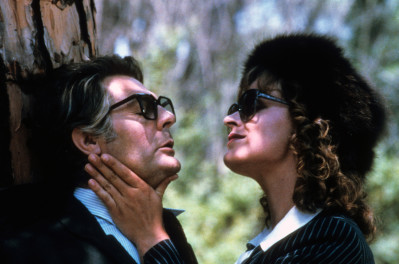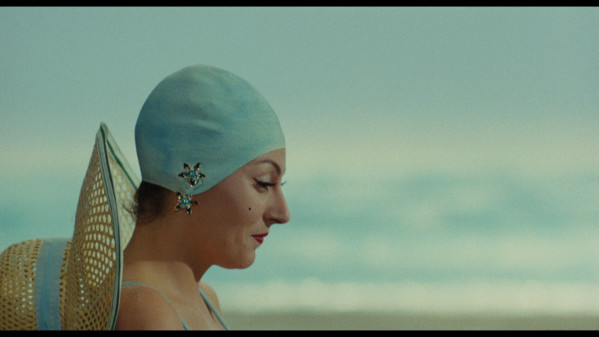REVIEW: Fellini’s ‘City of Women’ finds man lost in woman’s world

The look on the face of Marcello Mastroianni in Federico Fellini’s City of Women is almost priceless. He plays a character named Snàporaz, a businessman who ventures off a train and follows the woman of his dreams. When he realizes that he should be careful what he wishes for, and be careful where one pathway will lead him, that look on Mastroianni’s face comes into full view. He’s confused by the groups of women who barrage him with insults, flirtations, energy and arguments. He’s mystified by his surroundings and the odd visuals that come one right after another. He’s draw in, ever obsessed with trying to understand these characters and his reactions to them.
Mastroianni, one of the best Italian actors of all time, was a frequent actor in Fellini features. This 1980 movie continues the duo’s exploration of societal issues and the absurdity of life. Everything and everyone in City of Women are meant to be taken seriously and jokingly. Fellini, working off a script by Brunello Rondi, couples humor with thoughtfulness as he tells this allegorical tale.
Snàporaz first encounters a hotel where a feminist convention is in full swing. The assembled women either embrace or deride Snàporaz for his ogling eyes and traditional ways. They represent a radical divergence from the way he has lived his life. Although there are few details on Snàporaz’s background, it can be deduced that he’s a man facing a midlife crisis and one who has been nurtured, loved, desired or scorned by the women in his life. Each of these qualities are present among the hotel guests who try to be representations of his lover, his mother or both.

One thing is for certain: Snàporaz doesn’t like what he sees. He can’t grasp the message behind the revolution on display, and he feels like a wandering victim, a man who thought he understood the relationships he has in life.
Up until this point in the narrative, Fellini and company keep the story somewhat traditional. Snàporaz jumps off the train, pursues a woman into the woods and stumbles upon the convention at the hotel. Many movies have similar premises of a character’s departure into the unknown. What sets City of Women apart is how abstract and absurd it becomes. When Snàporaz leaves the hotel, he works his way through a series of scenes and settings that feel theatrical, almost like he’s stuck in the recesses of his own mind or someone else’s mind.
He’s seduced by a farmer in a greenhouse. He’s taken hostage by a group of girls in a open-top car. He travels down a series of circus-like slides as he envisions memories from his youth. He fights with his wife, is seduced by two dancers who incorporate him into their routine and is nearly arrested. There are few men who live in this so-called “city of women.” The only man he encounters, besides some unnamed side characters, is an opera singer who hosts a party and also has a run-in with the police.
Fellini, for sure, delves into some interesting and important themes about masculinity, femininity, relationships, feminism, traditionalism and the divide between the sexes. Many of his trademarks are on display, including outrageous humor, stunning visuals, large set pieces, a plot that is almost serpentine in its twists and turns, and stock characters that provide humor, pathos and progression.
I’m not sure I accept or understand all of the many theses in the film. The iconic director paints too broad a brush when characterizing different groups and individuals in society. However, within his over-the-top representations, he is able to dig deeper than most filmmakers, and this exploration is what makes City of Women and the Fellini canon so engaging. There’s never a minute that doesn’t fascinate or challenge the audience’s preconceived notions.
Mastroianni has played this type of character before, but in City of Women he is able to bring Snàporaz’s doubtfulness over his age into play. He’s struggling with his own maturity, and he realizes he no longer fits into the younger mold of someone who jumped in and out of relationships without any thought of maintaining that partnership. In some ways, he’s rejecting his characterizations from earlier Fellini films. That through-line from one character to the next, from one film to the next helps contextualize City of Women, a late-career journey from one of Italy’s most accomplished directors. It’s a film that gets the audience thinking.
By John Soltes / Publisher / John@HollywoodSoapbox.com
- City of Women
- 1980
- Directed by Federico Fellini
- Written by Brunello Rondi, based on a story by Fellini and Bernardino Zapponi
- Starring Marcello Mastroianni, Anna Prucnal, Bernice Stegers and Ettore Manni
- Running time: 140 minutes
- Rated R
- Rating:





